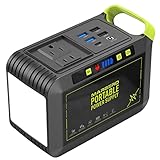Generator ratings and certifications are crucial indicators of a generator’s capabilities, safety standards, and performance metrics. When shopping for a generator, understanding these specifications helps you select the right power solution that matches your specific needs, whether for emergency backup, outdoor activities, or industrial applications.
Generator power ratings—standby, prime, and continuous—tell you exactly how much power a unit can deliver and for how long. Standby generators provide emergency backup during outages, prime power units can run for extended periods with variable loads, and continuous power generators are designed for non-stop operation.
Meanwhile, certifications from organizations like UL, PGMA, CSA, and NFPA ensure your generator meets rigorous safety and performance standards that protect both you and your equipment.
Choosing a generator without understanding these specifications can lead to inadequate power supply, potential safety hazards, or even compliance issues in certain locations. By familiarizing yourself with these ratings and certifications, you’ll make a more informed purchase decision that provides reliable power exactly when you need it.
Key Takeaways
- Generator ratings (standby, prime, continuous) determine how much power a unit delivers and for how long
- Safety certifications like UL 2201 and PGMA G300 ensure generators meet strict safety standards
- Environmental certifications such as EPA Tier 4 and CARB compliance address emissions requirements
- Safety features including GFCI protection and CO shut-off technology prevent hazardous situations
- Performance metrics like fuel efficiency and runtime help match generators to specific needs
Understanding Generator Power Ratings
Generator power ratings are the backbone of understanding a unit’s capabilities. These ratings tell you how much power a generator can produce under specific conditions and for how long. The three main types of power ratings are:
- Standby Power: This rating applies to generators designed for emergency use during power outages. Standby generators are typically used in homes and businesses to provide backup power for critical systems. They’re not meant for continuous use and usually have limited operating hours per year.
- Prime Power: Prime power generators are designed for more extended use and can serve as a primary power source in areas without reliable grid electricity. They can handle varying loads and operate for unlimited hours, making them ideal for construction sites, remote locations, or as supplementary power sources.
- Continuous Power: These generators are built to run non-stop at a constant load. They’re often used in industrial settings or for powering critical infrastructure where a continuous, uninterrupted power supply is essential.
Several factors can affect a generator’s power output, including altitude and temperature. At higher altitudes or in extreme temperatures, generators may not perform at their rated capacity. It’s crucial to consider these factors when selecting a generator for your specific location and needs.
You’ll need to calculate your power needs to determine the right generator size for your requirements. This involves listing all the appliances and equipment you need to power, noting both their running and starting wattages. For a detailed guide on this process, check out our article on generator wattage and sizing.
Key Generator Certifications and Standards
When shopping for a generator, you’ll encounter various certifications and standards. These are not just marketing jargon but crucial indicators of a generator’s safety, performance, and compliance with industry regulations.
UL 2201: This is a new standard specifically for portable generators. It focuses on reducing the risk of carbon monoxide poisoning, which has been a significant concern with portable generators.
PGMA G300: The Portable Generator Manufacturers’ Association (PGMA) developed this standard to address the safety and performance aspects of portable generators. It covers areas such as electrical safety, mechanical hazards, and carbon monoxide emissions.
CSA Certification: CSA (Canadian Standards Association) certification is often required for generators sold in Canada. This ensures the generator meets Canadian safety standards.
NFPA 110: The National Fire Protection Association sets this standard for emergency and standby power systems. It’s particularly relevant for generators used in critical facilities like hospitals or data centers.
IEEE Standards: The Institute of Electrical and Electronics Engineers (IEEE) provides various generator testing and performance standards, which are often used in industrial and commercial applications.
Environmental and Emissions Certifications
As environmental concerns continue to grow, emissions certifications have become increasingly important for generator buyers and manufacturers alike.
EPA Tier 4 Final: These regulations, set by the Environmental Protection Agency, apply to non-road diesel engines, including many generators. They aim to reduce particulate matter and nitrogen oxide emissions.
CARB Compliance: The California Air Resources Board (CARB) has its own strict emissions standards. Generators sold in California must meet these standards, which are often more stringent than federal regulations.
Safety Features and Certifications
Safety should always be a top priority when operating a generator. Look for these important safety features and certifications:
- Ground Fault Circuit Interrupter (GFCI) Protection: This prevents electrical shock by quickly shutting off power if a ground fault is detected.
- Carbon Monoxide (CO) Shut-off Technology: Some newer generators include sensors that automatically shut off the engine if dangerous levels of CO are detected. This is a crucial safety feature, especially for portable generators. For more information on this critical safety aspect, read our article on portable generators and carbon monoxide.
- Overload Protection: This feature prevents damage to the generator and connected devices by shutting off power if the load exceeds the generator’s capacity.
- Automatic Voltage Regulation: This helps maintain stable power output, protecting sensitive electronics from voltage fluctuations.
Performance and Efficiency Ratings
When evaluating generators, consider these performance metrics:
- Fuel Efficiency: This rating indicates how much power the generator produces per unit of fuel consumed. More efficient generators can run longer on the same amount of fuel.
- Noise Level: Measured in decibels (dB), this rating is particularly important for residential use or in noise-sensitive environments. For more on generator noise levels and their impact, check out our ultimate guide to portable generators.
- Runtime: This indicates how long the generator can run on a full tank of fuel at a specific load. It’s crucial for understanding how often you’ll need to refuel during extended power outages.
Choosing the Right Generator Based on Ratings and Certifications
Selecting the right generator involves matching the unit’s specifications to your specific needs. Consider not just your current power requirements but also potential future needs. Factor in the cost implications of different ratings and certifications—while a higher-rated generator might be more expensive upfront, it could save money in the long run through better efficiency and a longer lifespan.
For help in making this important decision, our guide on how to choose the right portable generator offers valuable insights.
Maintenance and Compliance
Regular maintenance is crucial for keeping your generator in top condition and ensuring it meets its rated performance. Some certifications may require ongoing compliance and record-keeping, especially for generators used in commercial or industrial settings.
It’s also important to note that using non-certified generators can have serious consequences, including voided warranties, legal issues, and safety risks. Always prioritize certified equipment from reputable manufacturers.
Emerging Trends in Generator Technology and Certification
The generator industry is constantly evolving, with new technologies emerging to meet changing needs and regulations:
- Smart Generator Systems: These integrate with IoT (Internet of Things) technology for remote monitoring and control.
- Renewable Energy Hybrid Generators: Combining traditional generators with renewable energy sources like solar panels, these systems are becoming increasingly popular and have their own set of certifications.
- Microgrid Compatibility: As microgrids become more common, generators that can seamlessly integrate with these systems are in high demand.
Conclusion
Generator ratings and certifications serve as essential guideposts in your search for reliable power solutions. By understanding the differences between standby, prime, and continuous power ratings, you can accurately match a generator to your specific power needs, whether for powering your home during a blackout or sustained operation in remote locations.
Safety should remain your top priority when selecting a generator. Look for units with key certifications like UL 2201 and PGMA G300, along with critical safety features such as GFCI protection and carbon monoxide shut-off technology. These standards not only protect your equipment but also safeguard you and your loved ones from potential hazards.
As generator technology continues to evolve with smart systems, hybrid solutions, and microgrid compatibility, staying informed about these advancements helps you make future-proof purchasing decisions.
Remember that the right generator—one that balances your power requirements, safety needs, and environmental considerations—provides more than just electricity; it delivers peace of mind when you need it most.
For more information on generator emergency preparation, check out our guide on portable generator emergency preparation.








Leave a Reply